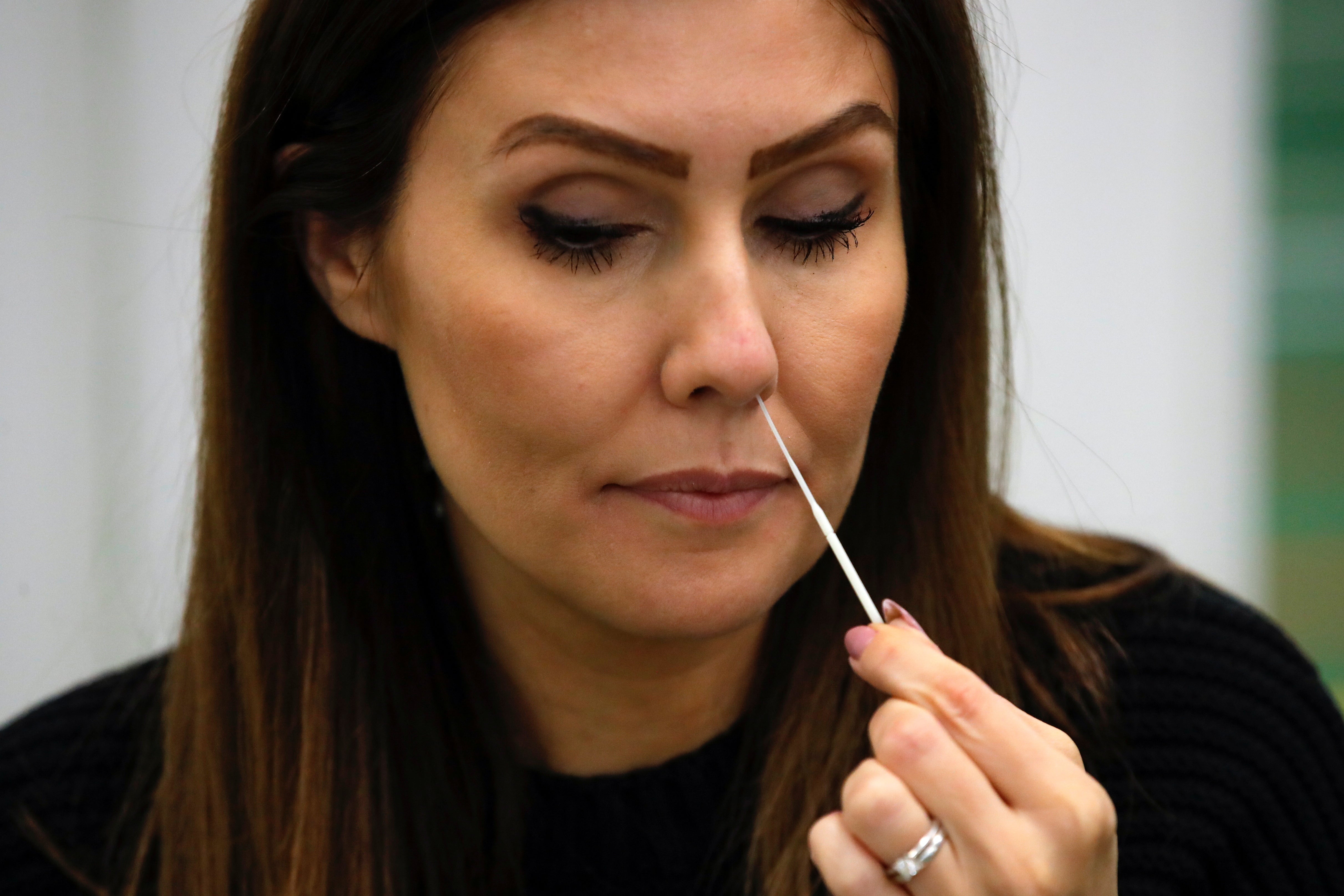Daily tests for Covid contacts offer hope of ending 10-day isolation rule
Instead of quarantine, tens of thousands of people will be allowed to go about their lives as before

Ministers have taken steps towards ending the 10-day isolation rule for the contacts of Covid-infected people by authorising a new trial that replaces mandatory quarantine with daily tests.
Up to 40,000 participants identified as contacts will be given daily lateral flow tests then – as long as their result is negative and they display no symptoms – allowed to go about their lives as before.
Matt Hancock hailed the study as paving the way to “shift the dial” by allowing people to avoid self-isolation, amid evidence that many find it too difficult, or expensive, to abide by the rules.
It will be launched, on 9 May, despite ongoing controversy over the accuracy of the rapid lateral flow tests to be used and the eye-watering cost of the “operation moonshot” programme.
Some government officials are known to have raised concerns about the mass expansion of the scheme because of fears that too many people are being told wrongly they do not have Covid-19.
Now tens of thousands of close contacts of people with the virus will be contacted by phone and sent seven days of rapid tests if they wish to take part in the trial.
They will test themselves every morning for those seven days – while a second group will be given one, more accurate, lab test and still required to isolate for the full 10-day period.
The aim is to help people avoid having to stay at home when they are not infected – amid ongoing criticism of the lack of financial support available to persuade them to miss work.
Professor Isabel Oliver, the head of the study to be run by Public Health England, said it recognised that “isolating when you have been in contact with someone who has tested positive for Covid-19 is challenging”.
“This study will help to determine whether we can deploy daily testing for contacts to potentially reduce the need for self-isolation, while still ensuring that chains of transmission are stopped,” she said.
Mr Hancock hailed the way “rapid testing is allowing us to get back to doing the things we all love”.
“Regular testing is already playing a critical role in helping us reclaim our lost freedoms – quickly spotting positive cases, helping identify new variants and squashing any outbreaks,” he said.
“This new pilot could help shift the dial in our favour by offering a viable alternative to self-isolation for people who are contacts of positive Covid-19 cases, and one that would allow people to carry on going to work and living their lives.”
However, one evaluation found that lateral flow tests correctly identify only 72 per cent of people who are infected with the virus with symptoms – and just 58 per cent of those without symptoms.
The regulator, the Medicines and Healthcare products Regulatory Agency (MHRA), has expressed concern that people are being given false reassurance that they are negative.
It wants the tests to be used as a “red light” check – to find infectious people who should then self-isolate – but not as a “green light” for them to go about their normal lives, after a negative result.
Everyone in England can already be tested twice a week using the rapid tests, for free, under the multibillion pound programme.
More than 145,765 Covid infections have since been detected that would not have otherwise been found, the health department says.
Subscribe to Independent Premium to bookmark this article
Want to bookmark your favourite articles and stories to read or reference later? Start your Independent Premium subscription today.

Join our commenting forum
Join thought-provoking conversations, follow other Independent readers and see their replies